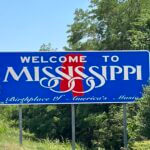Celebrate freedom this President’s Day
By Treasurer David McRae
Presidents Day is a holiday many of us easily overlook. It’s an excuse for a long weekend in the middle of winter, but how often do we look beyond the seemingly endless retail sales to reflect on the history and meaning of this holiday?
We celebrate Presidents Day on the third Monday of February each year. It has become popularly regarded as a celebration of all U.S. Presidents, not just Washington and Lincoln, but that was not always the case. In 1800, following the death of George Washington in 1799, Washington’s birthday on February 22 became a day of remembrance.
Through most of the 1800s it was an unofficial observance, with special celebrations in 1832 for the centennial of Washington’s birth and in 1848 when construction began on the Washington Monument. Washington’s Birthday finally became an official federal holiday in 1879 under President Rutherford B. Hayes. It initially only applied to the District of Columbia, but was expanded to the whole country in 1885. It was the first holiday to celebrate the life of an individual American, with the second being Martin Luther King, Jr. Day, which was signed into law in 1983.
In 1932 on Washington’s Birthday, the occasion was used to reinstate the Purple Heart, the first military badge of merit for common soldiers, which was originally created by General Washington as commander-in-chief of the Continental Army to honor soldiers who had been killed or wounded. Today the Purple Heart medal bears Washington’s image and is awarded to servicemen and women who are injured in battle. It is the oldest military award still given to members of the U.S. Armed Forces.
The transition from Washington’s Birthday to Presidents Day began with passage of the Uniform Monday Holiday Act in 1968 to “provide uniform annual observances of certain legal public holidays on Mondays.” In creating more three-day weekends, Congress sought to avoid mid-week shutdowns and hoped to “bring substantial benefits to both the spiritual and economic life of the Nation.”
Republican U.S. Representative Robert McClory of Illinois was a champion for officially changing the name of the holiday to Presidents Day so that Lincoln’s birthday could also be honored. He said, “We are not changing George Washington’s birthday. We would make George Washington’s Birthday more meaningful to many more people by having it observed on a Monday.” But that failed to pass, and that is why the holiday is still officially recognized by the federal government as Washington’s Birthday. Despite the opposition at the time, being positioned between Lincoln’s birthday on February 12 and Washington’s birthday on February 22, the day is now popularly known as Presidents Day and has been changed officially on the calendars of many states. Other Presidents born in February include William Henry Harrison (Feb. 19) and Ronald Reagan (Feb. 6).
In his Farewell Address, President George Washington wrote, “The unity of government which constitutes you one people is also now dear to you. It is justly so, for it is a main pillar in the edifice of your real independence, the support of your tranquility at home, your peace abroad; of your safety; of your prosperity; of that very liberty which you so highly prize.”
On this Presidents Day, I hope all Mississippians will take time not only to reflect on the importance and impact of Presidents Washington, Lincoln, Reagan, and others, but also to pray for our nation’s leaders and for our national unity. We should express our gratitude for the founding of our nation, our freedom, and what Washington called the “beloved Constitution and union, as received from the Founders.”
Mississippi Treasurer David McRae is the 55th Treasurer for the State of Mississippi. In this role, he helps manage the state’s cash flow, oversees College Savings Mississippi, and has returned nearly $65 million in unclaimed money to Mississippians. For more information, visit Treasury.MS.gov.





